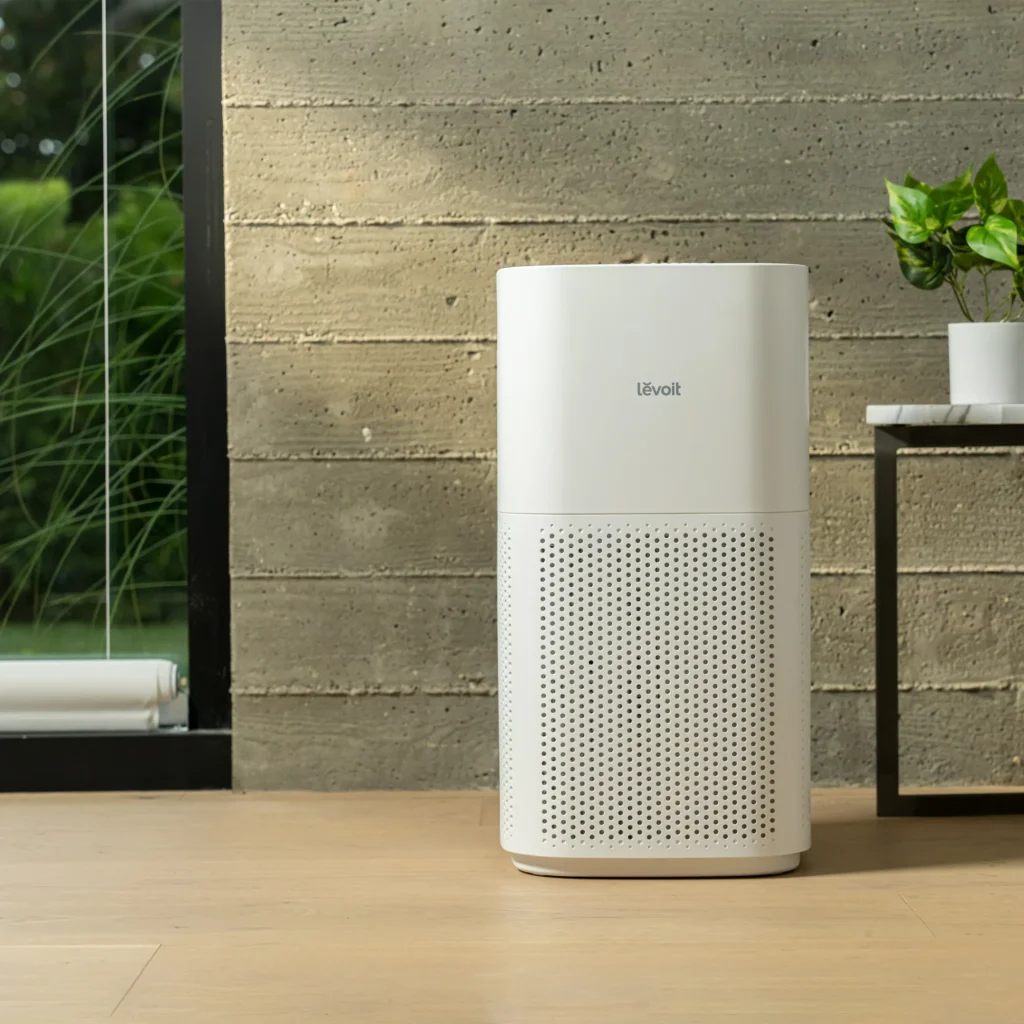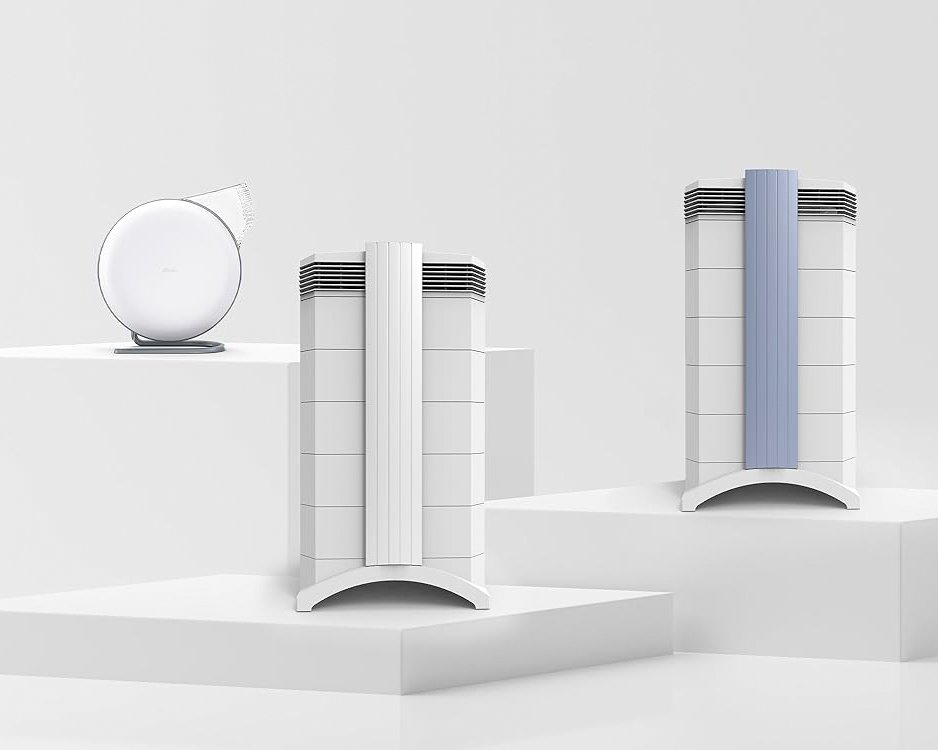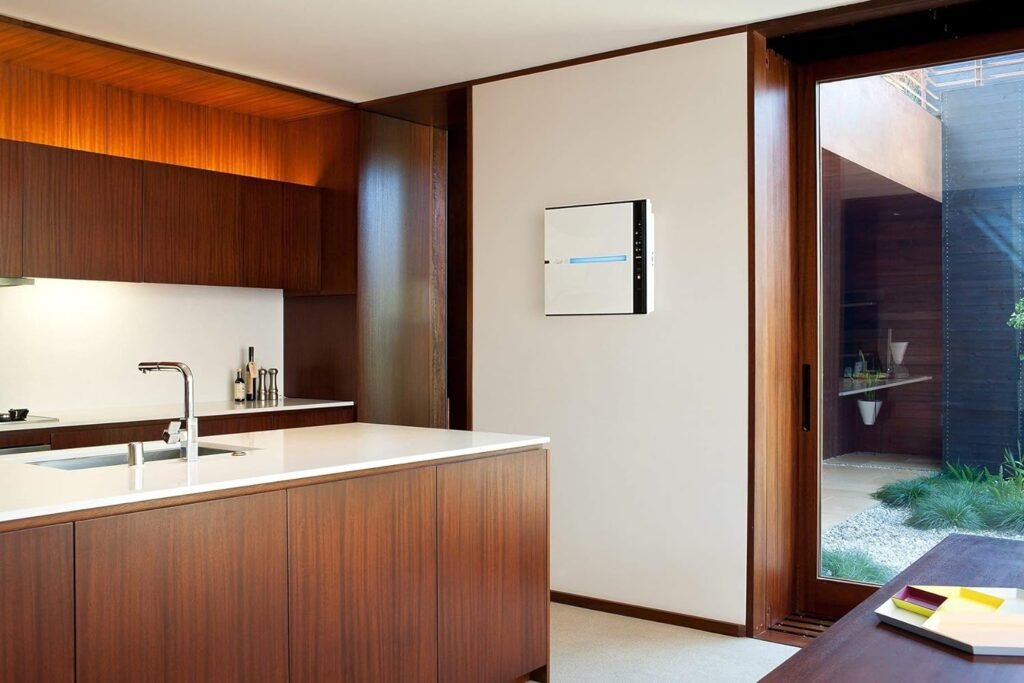The Best 5 Air Purifiers in May 2025

Introduction to The Best 5 Air Purifiers in May 2025 In recent years, the significance of air purifiers has gained considerable attention as individuals become increasingly aware of indoor air quality. With the quality of the air we breathe substantially impacting our overall health and comfort, air purifiers serve as vital appliances in maintaining a healthy living environment. Indoor air often contains various pollutants, such as allergens, dust, pet dander, and smoke, all of which can contribute to respiratory problems, allergies, and overall discomfort. The primary function of air purifiers is to filter and eliminate these harmful particulates, creating a cleaner atmosphere for occupants. They utilize different technologies, such as HEPA filters, activated carbon, and ionization, to capture and neutralize pollutants effectively. For instance, HEPA filters are known for their ability to trap 99.97% of particles as small as 0.3 microns, making them invaluable for those who suffer from allergies or asthma. Similarly, activated carbon filters are effective in absorbing odors and volatile organic compounds (VOCs), enhancing the indoor air quality further. Moreover, air purifiers can play a crucial role in mitigating the adverse effects of poor air quality, especially in urban areas where outdoor pollution can seep indoors. By investing in a reliable air purifier, individuals can significantly reduce their exposure to airborne irritants and contaminants. This can yield not only immediate improvements in health and wellness but also long-term benefits for one’s respiratory system. Choosing the appropriate air purifier is essential, as many models come with varied features tailored to specific needs. Factors to consider include room size, filtration type, noise levels, and maintenance requirements. By understanding the importance of air purification and the array of options available, consumers can make informed decisions that will greatly enhance their indoor air quality. Criteria for Selection When assessing the best air purifiers for May 2025, several critical factors were carefully considered to ensure that only the most effective models were included in the final list. The aim was to highlight air purifiers that not only meet consumer needs but also maintain high standards of quality and performance. One of the primary criteria was the filtration technology employed by the air purifiers. Models utilizing HEPA (High Efficiency Particulate Air) filters were given particular importance due to their ability to capture a wide range of airborne particles, including dust, pollen, and pet dander. Additionally, those with activated carbon filters were noted for their capability to absorb unpleasant odors, smoke, and volatile organic compounds (VOCs), thus enhancing indoor air quality significantly. Room size coverage is another essential factor. A good air purifier should adequately service the intended space, whether it be a small bedroom or a large living room. Each model’s Clean Air Delivery Rate (CADR) was analyzed, as this metric indicates how quickly and effectively an air purifier can cleanse air in a specific area. Noise levels were evaluated to ensure that the air purifiers operate quietly, allowing for use in bedrooms or during work hours without causing significant disruptions. This is particularly important for users who may have sensitivities to noise or who desire a peaceful environment. Energy efficiency also played a pivotal role in the selection process. Models that are ENERGY STAR certified not only help reduce electricity bills but also promote environmentally conscious choices. Lastly, user-friendliness was assessed, encompassing aspects such as ease of operation, maintenance, and the availability of smart features that enhance usability. By applying these comprehensive criteria, we ensure that the air purifiers selected for our list represent the best balance of performance, efficiency, and user satisfaction in the market today. Top 5 Air Purifiers in May 2025 Maintaining clean air in our living spaces is essential for health and well-being. The best air purifiers can significantly improve indoor air quality by removing allergens, pollutants, and other harmful particles. Below are the top five air purifiers available in May 2025, each offering unique features and advantages. 1. Dyson Pure Cool TP01 The Dyson Pure Cool TP01 is a versatile air purifier and fan in one, capable of capturing 99.97% of allergens and pollutants as small as 0.3 microns. Its HEPA filter ensures the air quality remains high, while the sleek design complements modern interiors. The TP01 also boasts Wi-Fi connectivity, allowing users to control it remotely via a smartphone app. Purchase here. 2. Honeywell HPA300 Honeywell’s HPA300 is renowned for its high-efficiency particulate air (HEPA) filtration system, effective in reducing dust, pollen, and smoke particles. Its powerful fan can cover large spaces up to 465 square feet, making it an ideal choice for living rooms or open areas. The HPA300 also features multiple cleaning settings for customized air purification. Purchase here. 3. Levoit Core 300 The Levoit Core 300 stands out with its compact design and powerful filtration capabilities. It includes a true HEPA filter and a pre-filter that captures pet hair and mold spores, making it suitable for households with pets. Its quiet operation and sleep mode make it perfect for bedrooms. Purchase here. 4. Coway AP-1512HH Widely recognized for its efficiency, the Coway AP-1512HH offers an innovative four-stage filtration system. This includes a pre-filter, deodorization filter, true HEPA filter, and vital ion filter. The air purifier effectively removes dust, allergens, and smoke odors from the air. Its eco mode also automatically adjusts fan speed based on air quality, ensuring energy efficiency. Purchase here. 5. Blueair Blue Pure 211+ The Blueair Blue Pure 211+ combines performance with style, featuring a unique design and a washable fabric pre-filter available in various colors. It’s capable of filtering out 99% of airborne particles and comes with a three-stage filtration system. With a clean air delivery rate optimized for large spaces, this model offers exceptional air purification. Purchase here. Each option presented reflects high-quality performance and user-friendly features, ensuring a cleaner and healthier living environment. Conclusion and Recommendations Throughout this article, we have examined the best five air purifiers available in May 2025, highlighting their features, advantages, and suitability for various environments. Selecting the right air purifier is
What is the Best Air Purifier on the Market Today?

Introduction to Air Purifiers Air purifiers have emerged as vital appliances in contemporary households, primarily due to the increasing awareness regarding indoor air quality. These devices serve the essential function of filtering and removing various airborne pollutants, allergens, and harmful particles, contributing to a healthier living environment. As we spend a significant amount of time indoors, the quality of the air we breathe becomes paramount, leading many to seek out effective air purification solutions. The workings of an air purifier typically involve a series of filters designed to trap particles like dust, pollen, pet dander, and smoke. Most commonly, HEPA (High Efficiency Particulate Air) filters are utilized as they can capture up to 99.97% of particles that are 0.3 microns in size. Additionally, many advanced models also include activated carbon filters, which are effective at adsorbing gases and odors, further enhancing indoor air quality. Growing concerns about environmental issues such as pollution and allergens have spotlighted the need for air purifiers. According to research, indoor air can often be more contaminated than outdoor air, leading to health complications ranging from allergies and asthma to more severe respiratory diseases. Common pollutants like volatile organic compounds (VOCs), dust, and mold spores occur not only from external sources but also from standard household items like cleaning supplies, furniture, and synthetic materials. The cumulative exposure to these irritants can significantly affect well-being, making the choice of an appropriate air purifier crucial. In light of these considerations, air purifiers have rapidly become essential elements in the homes of health-conscious individuals. Choosing the right air purifier involves understanding the specific needs of your environment, the types of pollutants you are looking to eliminate, and the features available in various models. This growing demand indicates that the right air purifier can make a meaningful difference in improving indoor air quality. Key Features to Consider When selecting an air purifier, several key features should be evaluated to ensure that the device effectively meets individual requirements. One of the most important aspects is the type of filtration system. The most recognized standard is the HEPA filter, capable of capturing 99.97% of particles that are 0.3 microns or larger. However, some models also incorporate activated charcoal filters, which are effective in removing odors and certain airborne chemicals. Understanding the filtration technologies available allows consumers to choose a purifier that directly addresses their air quality concerns. Another critical factor to consider is the suitability of the air purifier for specific room sizes. Manufacturers often provide a square footage rating, indicating the maximum area the unit can effectively purify. Selecting a model that fits the space dimensions is essential for optimal performance; a unit designed for larger areas will typically have a more powerful motor and fan system. Noise levels are often a concern, particularly in bedrooms or quiet environments. It is advisable to check the decibel ratings of different models, as some purifiers operate at lower noise levels, making them ideal for nighttime use. Energy efficiency is also crucial, especially for units that will be running consistently. Look for models with the Energy Star label, which indicates compliance with energy efficiency guidelines, helping to reduce electricity bills. Smart features have become increasingly popular, such as remote control options, air quality sensors, and connectivity with apps. These functionalities can enhance user convenience and provide real-time data on air quality. Lastly, maintenance requirements should not be overlooked. Regular filter replacements and easy access to internal components for cleaning can affect the longevity and performance of the air purifier. Considering these features will equip consumers to make an informed decision that aligns with their specific needs. Top Air Purifier Brands in 2024 As consumers seek to improve indoor air quality, several brands have emerged as leaders in the air purifier market in 2024. Each of these brands has established a reputation for quality, innovation, and reliability, making them popular choices for customers looking to find the best air purifier for their needs. Dyson is widely recognized for its cutting-edge technology and stylish designs. The brand offers a range of products that combine air purification with fans and heaters. Dyson air purifiers are equipped with advanced filtration systems, including HEPA filters that capture 99.97% of particles, making them effective against allergens and pollutants. Additionally, their smart features allow users to monitor air quality in real time through a mobile app, enhancing convenience and ease of use. Another notable brand is Coway, famed for its comprehensive product range that includes various models tailored for different room sizes and air quality needs. Coway’s air purifiers utilize a multi-stage filtration system, featuring a pre-filter, deodorization filter, and a true HEPA filter, ensuring that even the smallest pollutants are removed. The brand has garnered multiple awards for its performance and energy efficiency, positioning itself as a top choice for environmentally-conscious consumers. Honeywell, with its long-standing reputation in home appliances, offers a broad array of air purifiers designed to meet various consumer needs. The Honeywell brand is known for its reliable performance in removing allergens, smoke, and odors. Many models feature easy-to-use controls and filter replacement indicators, making maintenance straightforward for users. Their True HEPA technology is particularly effective in improving overall air clarity and quality. Lastly, Levoit has made a name for itself in the budget-friendly segment without compromising on performance. The company focuses on compact designs that are perfect for smaller spaces. Levoit air purifiers often include features such as quiet operation and energy-saving settings, appealing to consumers seeking a cost-effective solution for enhancing indoor air quality. Comparative Review of Popular Models In today’s market, a variety of air purifiers are available, each with unique features and varying levels of performance. This comparative review delves into some of the leading air purifier models, assessing their performance, price, design, and customer feedback, enabling consumers to make informed decisions tailored to their specific needs. The first model worth discussing is the Dyson Pure Cool Link. Renowned for its sleek design and advanced technology, this air purifier not only filters
ULPA vs. HEPA Filter: What’s the Difference

When it comes to air filtration, ULPA (Ultra Low Penetration Air) and HEPA (High Efficiency Particulate Air) filters are two popular options. Both filters are designed to remove airborne particles and improve indoor air quality, but they have some key differences.
Are UV Air Purifiers Worth It? Understanding Their Limitations

UV air purifiers have gained popularity in recent years as a solution for improving indoor air quality. These devices use ultraviolet (UV) light to kill or deactivate harmful bacteria, viruses, and other microorganisms present in the air. While they may seem like a promising solution, it is important to understand their limitations before investing in one.
Air Purifier Buying Guide

In this air purifier buying guide we will discuss what to avoid, what’s really important and which ones to consider for your ultimate clean air environment.
The 5 Most Asked Questions About Air Purifiers

Air purifiers have become increasingly popular in recent years as people have become more aware of the importance of clean air for their health and well-being. With so many options available, it’s no wonder that people have a lot of questions about air purifiers. In this article, we will explore the five most searched topics about air purifiers and provide you with the information you need to make an informed decision. 1. How do air purifiers work? One of the most common questions people have about air purifiers is how they actually work. Air purifiers use various technologies to remove contaminants from the air, such as HEPA filters, activated carbon filters, and UV light. HEPA filters are particularly effective at capturing small particles like dust, pollen, and pet dander, while activated carbon filters can remove odors and chemicals. UV light can kill bacteria and viruses. Read More 2. Do air purifiers help with allergies? Many people turn to air purifiers to help alleviate allergy symptoms. Air purifiers with HEPA filters are highly effective at removing allergens from the air, such as pollen, dust mites, and pet dander. By reducing the levels of these allergens in the air, air purifiers can help minimize allergy symptoms and provide relief for allergy sufferers. Read More 3. Are air purifiers effective against viruses and bacteria? In light of the recent COVID-19 pandemic, there has been increased interest in whether air purifiers can help protect against viruses and bacteria. While air purifiers with UV light can kill some viruses and bacteria, it’s important to note that they are not a substitute for other preventive measures like wearing masks and practicing good hygiene. However, they can be a valuable addition to your overall strategy for maintaining a clean and healthy indoor environment. Read More 4. How often should I replace the filters? The frequency of filter replacement depends on the type of air purifier and the manufacturer’s recommendations. In general, HEPA filters should be replaced every 6 to 12 months, while activated carbon filters may need to be replaced more frequently, typically every 3 to 6 months. Regularly replacing the filters ensures that your air purifier continues to operate effectively and maintain clean air in your home. Read More 5. Can air purifiers reduce odors? Air purifiers with activated carbon filters are specifically designed to tackle odors. These filters are highly effective at absorbing and neutralizing odors from pets, cooking, smoke, and other sources. If you have concerns about unpleasant odors in your home, investing in an air purifier with an activated carbon filter can help freshen the air and create a more pleasant living environment. Read More Conclusion Air purifiers are a valuable tool for improving indoor air quality and creating a healthier living environment. By understanding how they work, their effectiveness against allergens, viruses, and bacteria, and the importance of regular filter replacement, you can make an informed decision when choosing an air purifier for your home. Additionally, if you are dealing with persistent odors, consider investing in an air purifier with an activated carbon filter. Remember, while air purifiers can provide benefits, they should be used in conjunction with other preventive measures for optimal results.